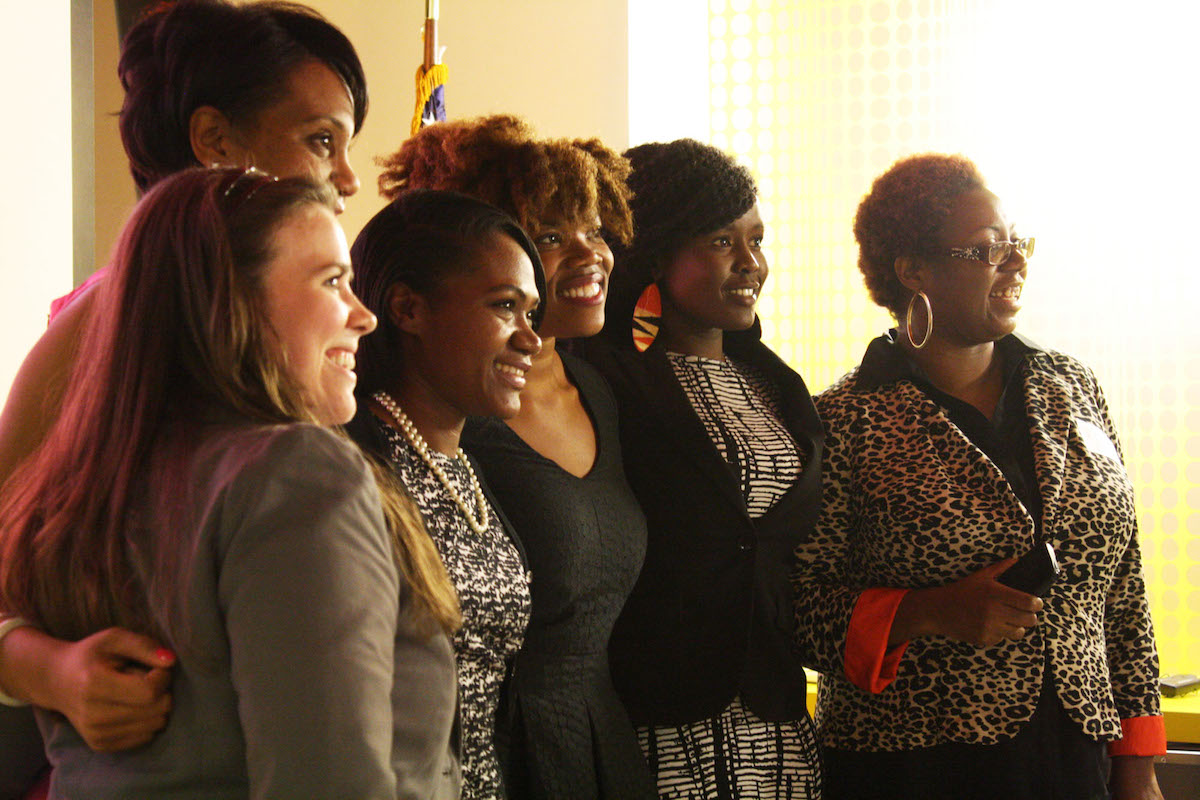Add “side hustle” to the list of terms associated with women and technology.
The term was repeated often at DC Web Women’s Millennial Women in Tech roundtable discussion Wednesday night. Eight women contributed to the conversation, all of whom pursued side hustles as a way to promote STEM or continue to develop their careers.
Vienna Mbagaya, a public health consultant, travels to college campuses to encourage millennial immigrants and first generation Americans to consider careers in STEM.
Babs Lee works a 9-to-5, built her own app and helped run DC’s Startup Weekend.
Ashley Holtz is one of three women in her practice of around 200 at KPMG, where she works as a software engineer. On the side, she serves as DC Web Women’s outreach co-director.

But despite these women’s dedication to tech, most of them didn’t grow up in STEM-heavy environments.
“I never touched tech,” said Kaitlin Carpenter, a marketing strategist originally from Idaho. “They had some classes, but it was a basement full of guys, and I didn’t want to be that girl. Moving to DC and seeing all these great initiatives was so eye-opening, and I finally started learning a bit [of coding].”
No prior knowledge
STEM is highly encouraged among youth today, but that wasn’t necessarily the case 10-15 years ago — which is why some millennial women are starting from scratch.
Facebook can say it wants to hire more women, but we need to teach the next generation so that they’re ready for those opportunities.
On a panel at American University, Holtz asked students to raise their hand if they knew anything about coding. Only one woman did.
“Having all-female tech groups for is really important,” Holtz said. “It offers an environment where your confidence can be boosted. Even people going through career changes in their 40s and 50s need [these groups] to have a support system and an understanding of what education you need.”
Having a mentor can help you find direction, CEO and founder of SOCIALgrlz Marissa Jennings said. But it also helps if you find a mentee to help grow the next set of 20- and 30-something women leaders.

After teaching herself a little bit about coding, Carpenter volunteered with GROW — a program that educates girls ages 8-12 in web development — she saw young girls grasping concepts she’d just learned.
“Facebook can say it wants to hire more women,” Carpenter said, “but we need to teach the next generation so that they’re ready for those opportunities.”
Human Contact = Better Coder
Having all-female tech groups for is really important.
While many of the speakers were self-taught computer programmers, they emphasized the power of human contact. Rather than spending hours online, find someone to ask — male or female.
“There are guys out there that are willing to help you if you ask,” Lee said. “They’re allies.”
“DC is amazing,” Carpenter added. “You 100 percent need to take advantage of the physical space with people who are there to look over your shoulder.”
Interested in becoming a woman (or man) in tech but don’t know how? Check out these resources for all levels mentioned during the discussion:
DC resources:
Online resources:
- Code Academy
- MIT Open Course Software
- Lynda
- thenewboston YouTube tutorials
- Udacity
- Coursera







